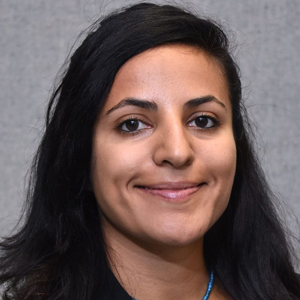PhD in Leadership & Change
Engaging in the scholarship and research of leading positive change.
Antioch's PhD in Leadership and Change program is dedicated to engaging working professionals in the interdisciplinary study, research, and practice of leading positive change in workplaces, schools, organizations, and communities across the country and the world.
This degree is offered by Antioch University's Graduate School of Leadership and Change.
A PhD Program to Fit Your Busy Life
Your personal life is taken into account:
- Live anywhere
- Work full-time
- Attend three residencies each year (for three years)
- Stay connected through our robust online community
Your interests and curiosities are at the core
Do you wonder why your teams aren’t working well together and what change could improve their relationships? Or, how to improve student learning on the campus where you teach or administer programs? Do you wish you could understand why many individuals are resistant to change and what might be ways to engage them successfully? Or why do so many leaders continue to operate from a command and control style?
The PhD in Leadership and Change is a post-masters, full-time program delivered in a unique and distinctive model:
- Intense faculty and staff support, from the first day to dissertation completion
- Low Residency hybrid delivery means face-to-face meetings 3 times a year
- Professional Seminar for small and large group discussions and workshops throughout the year
- Credit for demonstrating learning rather than seat time in a course
- Learner flexibility within an annual structure, cohort progress through the program, and individual interests
- Dissertation Phase for conducting original scholarly research
At the heart of study is the student’s own practice in professional life. The program enables learners to continuously reflect on and integrate their real-world experience with scholarship and methods of inquiry. The program encourages students to integrate theory and practice in order to enrich their own practice and expand relevant theory. This is not about an ivory tower, but about taking your learning into your workplace and community to help make positive change, improve outcomes, and engage individuals in ways that benefit the common good.
These are the types of curiosities our students bring to their study. These are the places of wonder that frame discussions, demonstrations of learning, real-world change initiatives, and the dissertation. This PhD program is an opportunity to explore in-depth, evidence-based ways to practice and lead change that can make a difference.
The majority of students in the program are mid to senior-level practitioners. This means that for many, the program journey and achieving their PhD deepens the career paths they are already on. For some, securing a PhD offers the opportunity for new positions, and provides them with the expertise to open consulting practices, teach at the local college or university, or help them become a more public intellectual in their professional networks. Learn more about the impactful work of our learning community members within our newsletters and Facebook announcements of alumni and student career and community achievements.
Faculty Spotlights

Holly King, PhD
Research Affiliate
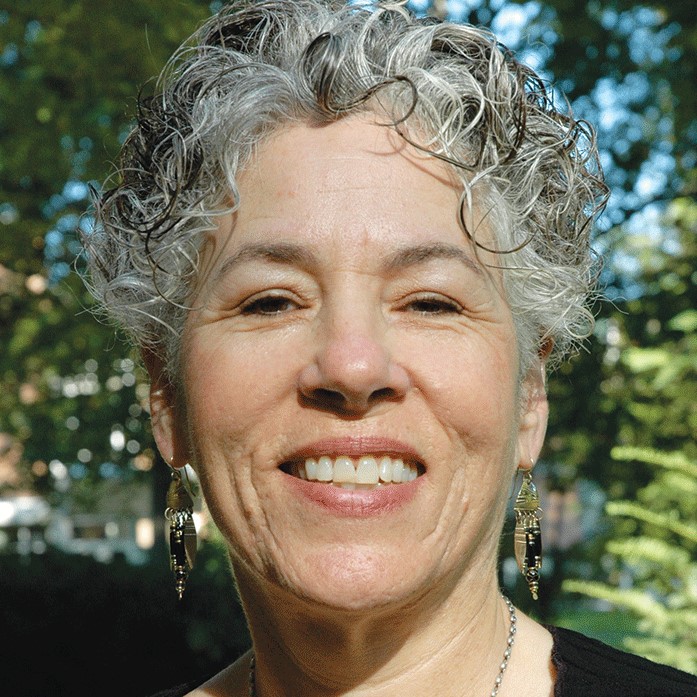
Laurien Alexandre, PhD
Dean Emerit

Julie I. Johnson, PhD
Research Affiliate

Kenneth Alexander Williams
Professor
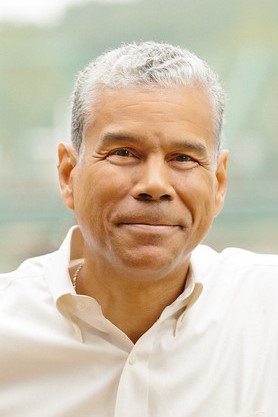
Michael Valentine, PhD
Research Affiliate
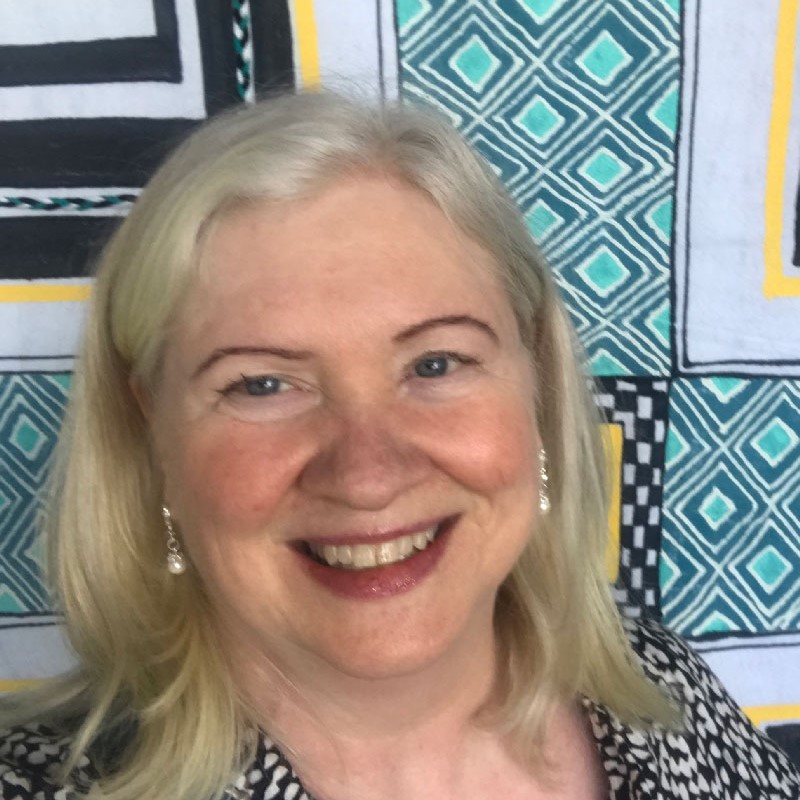
Shana D.L. Hormann, PhD
Faculty Emeritus
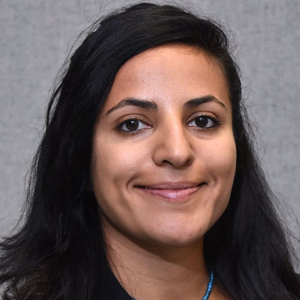
Rengin B. Firat
Professor of Leadership and Change
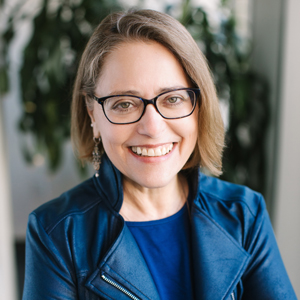
Amy Rutstein-Riley, PhD, MPH
Dean and Director PhD Program in Leadership and Change
Explore Our Community
Dissertation Phase
Conduct original, scholarly research
A PhD offers the opportunity to conduct original scholarly research, a dissertation. In our program, we want to support research that makes a difference, and that has the potential to inform and affect positive change in organizations and communities and schools, and workplaces.
Over the course of the first three pre-candidacy years, students have the opportunity to engage in the interdisciplinary study of leadership and change as well as to develop competence in research skills. Once they complete the pre-candidacy requirements, they are well prepared to design original research into a topic that matters to them. With a strong supportive Dissertation Committee, students are challenged to conduct a meaningful study that answers their professional curiosities and helps inform ways to lead change and to improve practice.
Three Years to Dissertation
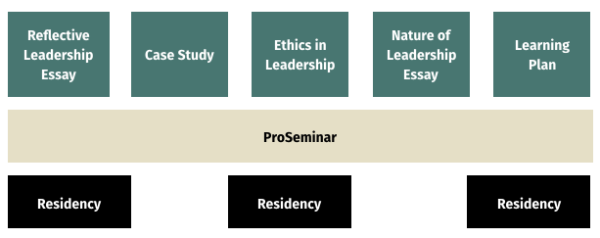
Three residencies (2 on-site and 1 virtual)
Reflective Leadership Essay – The student demonstrates the ability to reflect in-depth on the personal meaning (e.g. personal values, personal organizational interests) of his/her past, present and marginalization systems and diverse populations prospective roles as a leader in an organization. This assignment is a demonstration of learning from the Reflective Leader module, which includes residencies, readings, and discussions.
Case Studies of Leading Change – The student demonstrates an ability to apply key issues and concepts to the complexities of real-life leadership and change situations. The case study and analysis must be substantial enough to enable the student to apply the literature and explore change situations. This assignment is a demonstration of learning from the Case Study module, which includes residencies, readings, and discussions.
Ethics in Leadership and inquiry – The student demonstrates familiarity with and understanding of leadership theories, concepts, and themes and their application to an area of the student’s interest. This assignment is a demonstration of learning from the Ethics module, which includes residencies, readings, and discussions, as well as the completion of the CITIMODULE.
Nature of Leadership Essay – The student demonstrates familiarity with and understanding of leadership theories, concepts, and themes and their application to an area of the student’s interest. This assignment is a demonstration of learning from the Nature of Leadership module, which includes residencies, readings, and discussions.
Proseminar 1 – A year-long cohort-based Proseminar with on-site and online learning activities. The focus of Proseminar 1 is the core curriculum areas and the development of reflective practice as a learner.
Learning plan – Student identifies overarching learning goals, their challenges as a learner, and directions for year 2.
Three residencies on-site
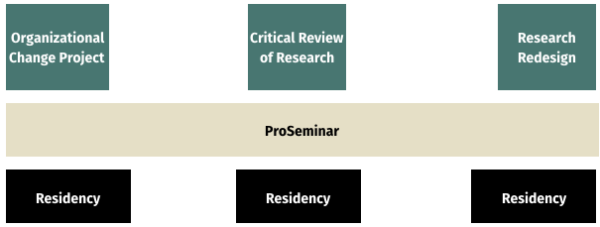
Organizational Change Project – The student designs, leads, and evaluates a change initiative based on an assessment of needs, theoretical and practical considerations in the field of leadership and organizational change, and a commitment to participatory leadership styles and ethical professional practice. This assignment is a demonstration of learning from the Organizational Change module, which includes residencies, readings, and discussions,
Critical Review of Research - Students demonstrate an understanding of research designs, including basic, applied, and integrative research; and research paradigms, including both qualitative and quantitative approaches, in the literature of their field. Students are expected to critique the research studies in their own professional fields, including the quality of the research question(s), method(s) of inquiry, appropriateness of the data analysis procedures, and validity of inferences and conclusions drawn. The student is expected to explore the design models and critique their strengths and weaknesses. This assignment is a demonstration of learning from the Research module, which includes residencies, readings, and discussions.
Research Redesign - The student demonstrates deep knowledge of at least two research methods by selecting two published peer-reviewed studies in the field, one qualitative and one quantitative, and redesigning them. This assignment is a demonstration of learning from the Research module, which includes residencies, readings, and discussions./li>
Proseminar 2
A year-long cohort-based Proseminar with on-site and online learning activities. A significant aspect of this year’s Proseminar is the development of and reflection on leading change.
Three residencies on-site
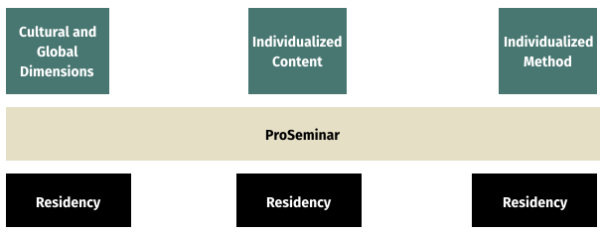
Cultural Dimensions of Leadership – The student demonstrates his/her ability to examine and synthesize ideas and concepts she/he has acquired and to prepare for the next stage of their development within the program and their practice. The specific focus of this essay invites students to reflect on leading change in a world of cultural differences, unequal access to power, and unresolved or unaddressed issues of social justice. This assignment is a demonstration of learning from the Cultural and Global Dimensions of Leadership Module, which includes residencies, readings, and discussions.
Individualized Learning Modules - These are two in-depth study opportunities, one in a content area related to the dissertation direction and one in the research method intended to be used in the dissertation.
Proseminar 3 – A year-long cohort-based Proseminar with on-site and online learning activities.
Three residencies on-site

Dissertation – Students must complete a Doctoral dissertation demonstrating their ability to conduct original, scholarly research. A dissertation begins with a well-designed question or issue meriting investigation. The issue should emerge from and carry forward an existing body of theory and knowledge. The dissertation should demonstrate scholarship, creativity, and originality and have implications for a particular issue in the field of leadership and change in the professions and/or communities. The Dissertation Defense is a student’s presentation of the work at a residency or other approved venue.
Dissertation Proposal - Students design a study and prepare the Dissertation Proposal, which is the first three chapters of the Dissertation. The Dissertation Hearing is the culmination of this phase, and once approved by the Committee, the student then secures the appropriate Institutional Review Board and proceeds with conducting the research phase.
Admissions / Cost / Aid
Admissions
Application Deadline
| Term | Early Application Review | Rolling Application Review | Beginning of Term |
|---|---|---|---|
| Summer 2025 | October 1 | Begins February 1 | July 1 |
| The PhD in Leadership and Change program admits 25-30 students in the cross-sector cohort each year, with the academic term beginning July 1. Applications are accepted year-round. Early review of complete applications occurs after October 1st each year. Review of subsequent complete applications begins after February 1st each year and continues through mid-May and/or until the cohort is full. | |||
| The PhD Completion Pathway into the PhD in Leadership and Change program admits students on a rolling basis, with academic terms beginning November 1, March 1, and July 1. Applications are accepted year-round. Review of complete applications occurs as they are submitted. | |||
Requirements
A master’s or other graduate degree issued from an institution recognized by an accrediting body that has been approved by the United States Department of Education or the Council for Higher Education Accreditation and five years of relevant professional experience are minimum eligibility requirements. In addition, selection for admission will depend upon such characteristics as capacity for self-directed learning, evidence of strong academic skills and conceptual abilities, and an interest in interdisciplinary study and applied research. Applicants must demonstrate a strong potential for individual and professional growth, evidence of leadership and aspiration to lead, and an interest in being a socially engaged professional.
How to Apply
- Online Application
- Admissions essay
- Please submit a comprehensive reflective autobiographical statement no less than 8 pages and no more than 10 pages, double-spaced, in 12 point font that thoughtfully explores the path that has led you to pursue doctoral study in the PhD in Leadership and Change program at Antioch University by addressing the prompt questions below.
- Note: When crafting your essay, thoughtfully engage with the following themes to guide your response, though you need not be limited by them. You may weave these elements into a single cohesive essay or address them individually in each question as relevant. However you opt to respond, please address each theme fully.
- The key personal, professional, and educational experiences that have shaped your leadership identity, values, and aspirations as an agent of change.
- Your relevant work history and leadership roles, whether formal or informal.
- Your motivation for pursuing doctoral inquiry, including your demonstrated capacity for self-directed learning and critical reflection.
- The ways in which your background and experiences align with Antioch University’s mission to advance social, economic, and environmental justice.
- Questions:
- Compose a reflective, autobiographical narrative that critically examines the personal, professional, and intellectual experiences that have shaped your decision to pursue doctoral study in the PhD in Leadership and Change program.
- Note: Your statement should illuminate the evolution of your leadership identity, articulate your scholarly and practice-based interests, and demonstrate your readiness for self-directed, inquiry-based learning. Please include relevant work experience, formative personal and professional influences, and evidence of your capacity for autonomous learning, critical reflection, and contribution to transformative change.
- Articulate how engagement in this PhD in Leadership and Change program will enhance your effectiveness as a reflective practitioner and principled leader within your professional field.
- Note: Your response should demonstrate a clear understanding of the program’s interdisciplinary and practice-oriented approach, and critically explore how its theoretical frameworks, scholarly rigor, and emphasis on social change will inform your leadership practice and advance your contributions to your field.
- Describe the scholarly area(s) you intend to explore during the individualized curriculum phase of the PhD in Leadership and Change program, articulating the intellectual passions and professional commitments that underlie your interests.
- Note: Please offer a detailed account of the questions that animate your curiosity, the issues or phenomena you seek to investigate, and the knowledge, theories, or methodologies you hope to engage. Your response does not need to be your intended dissertation question, but should reflect both a deep personal resonance with the topic and an emerging vision for how your inquiry may contribute to broader understanding and transformative practice in your field.
- Offer a reflective narrative from your professional experience that illustrates your evolving understanding of leadership and change within your field.
- Note: Your account should demonstrate critical insight into the complexities of leading in dynamic contexts, highlight how your values and actions intersect with systems of change, and reveal how this experience has informed your leadership philosophy and aspirations for transformative impact.
- Antioch University’s PhD in Leadership and Change is rooted in principles of social, economic, and environmental justice. Please reflect on how your values and lived experiences align with this mission. In particular, describe a time when you engaged across significant lines of difference—cultural, racial, ideological, or otherwise. What challenged you? What did you learn about yourself and about leadership through that experience?
- Note: We encourage you to engage deeply, reflect honestly, and provide sufficient context and narrative for the admissions committee to understand your readiness for and alignment with this unique program.
- Compose a reflective, autobiographical narrative that critically examines the personal, professional, and intellectual experiences that have shaped your decision to pursue doctoral study in the PhD in Leadership and Change program.
- Three recommender forms
- Letters of recommendation should be provided by individuals who possess a substantive understanding of your personal character, academic aptitude, and professional accomplishments.
- Note: Recommenders should be able to speak thoughtfully to your intellectual readiness, capacity for critical inquiry, and potential to engage meaningfully in advanced doctoral-level scholarship. Ideally, these individuals will also be familiar with your long-term educational and professional goals and can offer informed reflections on your suitability for rigorous, self-directed study within the interdisciplinary context of the PhD in Leadership and Change program.
- Transcripts
- Please arrange for one official transcript to be sent directly to the PhD in Leadership and Change program from each post-secondary institution you have attended.
- Note: Transcripts must be issued by the institution and transmitted through a secure electronic delivery to ensure authenticity and compliance with official academic documentation standards.
- Resume
- Please submit a comprehensive curriculum vitae (CV) or resume that outlines your professional trajectory and academic background.
- Note: Your CV or resume should include relevant paid and volunteer work experience, educational credentials, research activities, community and organizational leadership roles, professional affiliations, honors and awards, as well as any presentations, publications, or other scholarly contributions that reflect your engagement with your field.
- Research-oriented writing sample
- Please submit a writing sample of at least 10 pages that demonstrates your ability to think critically, synthesize ideas, and engage in conceptual analysis.
- Note: Solo-authored work is preferred; if the piece is co-authored, clearly indicate your contributions. While a formal research paper is not required, the sample should reflect your capacity for scholarly writing, such as integrating literature, articulating complex ideas, and constructing a coherent argument. If you do not have an existing piece, you may create a new submission specifically for this purpose.
- Application fee
- A non-refundable application processing fee of $50 USD, payable to Antioch University, must accompany your submission for consideration by the full admissions committee.
- Note: Fee waivers may be granted upon completion of an information session.
Please note: All materials submitted for application to the PhD program become the property of the PhD program.
Cost
Tuition
Guaranteed fixed tuition is offered in the PhD in Leadership and Change Program for the first three years. Once a student advances to candidacy, the tuition is half of the full tuition, beginning in the trimester following advancement. Additional costs include room and board, transportation, books, course materials, supplies, equipment, and subscriptions. Payment plans are available.
| Item | Cost |
|---|---|
| Annual tuition | $28,683 |
| Books/supplies/subscriptions | $1,350 |
| Room and board (based on 10 nights x $150 hotel; $50 food a day) | $1,500 |
| Transportation (based on 3 residencies x $500 transportation each) | $3,876 |
| Total | $35,409 |
| View the Cost of Attendance Components | |
Payment plans are available. Tuition is charged on an annual basis until candidacy is obtained. Once candidacy is reached, tuition is half of the current pre-candidacy annual tuition and is charged on a trimester basis.
Financial Aid
A majority of GSLC students finance their education through some form of financial aid. You may not be sure which federal, state, public, and private aid packages – such as loans, scholarships, and grants—are right for you. Our staff is here to help you, so you can focus on what’s most important: beginning your academic program.
LEARN MORE
Transfer Credit Information
The program is willing to consider assessing doctoral work completed at another accredited institution within the past five years. The student’s work is evaluated to determine the degree to which it meets the learning goals and criteria established by our program faculty for only two specific first-year assignments: the Case Study in Leading Change and the Nature of Leadership.
International Student Information
- Program Information - https://www.antioch.edu/admission-aid/admissions/international-students/international-student-gslc/
- University Information - https://www.antioch.edu/admission-aid/admissions/international-students/

Start your Antioch Journey
Take your next step - talk to our admissions team to find the right program for you.

